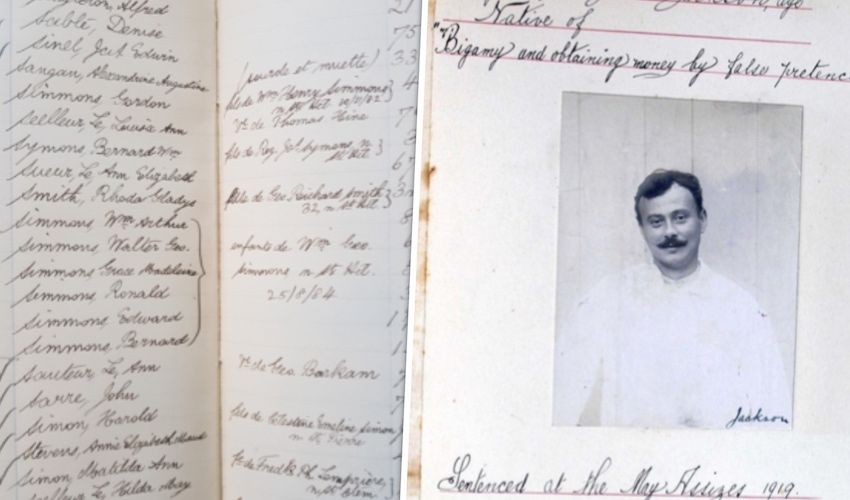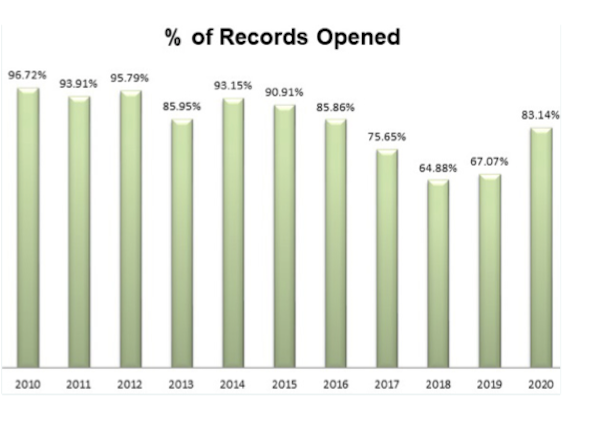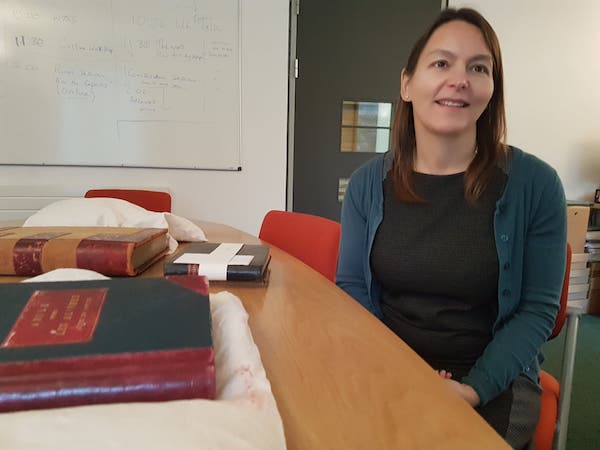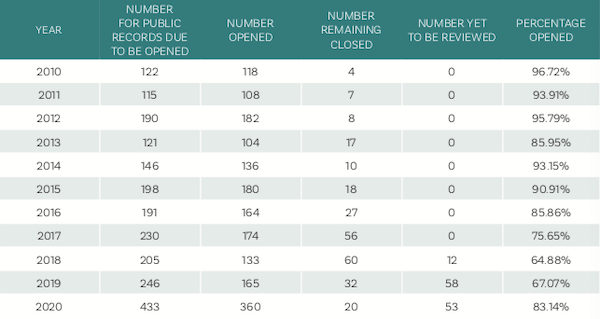


The number of historic records being opened to the public by government is on the rise after years of decline after the island's archivist raised the alarm.
Every year, public records held at Jersey Archive that are closed to the public on transfer are reviewed after periods of 30, 50, 75 and 100 years – but, in recent years, some were not opened when they should have been available, while others were not reviewed at all.
In 2018 and 2019, this meant that around just two thirds of records were opened.
However, this year, there has been a rise of 16%, with 83% being opened in total.
Linda Romeril, the Archives and Collections Director, had previously raised the alarm about the small proportion of records that were actually opened.

Pictured: The number of records opened has been falling since 2015.
In her 2018 annual report for Jersey Archive, she noted that, while the rise in data privacy and the implementation of new data protection legislation could partially explain the decrease, it was “important that we continue to balance an individual’s right to privacy against the rights of the citizen to information from public institutions enshrined in Freedom of Information legislation."
It came after the percentage of documents opened had decreased for five consecutive years.
Ms Romeril told Express that when the Freedom of Information (FOI) law came into force, it changed the process of opening records.
“From 2015 onwards, the onus of making the decision was moved to the department,” she said.
“It used to sit with Jersey Archive, I would make a preliminary decision and it then went to an independent panel. But the process changed from 2015.
“Now what happens is that we will email the department around October and tell them, 'You have 20 documents to be opened to the public.' If it’s 100 years, we will open it anyway because you can’t keep it closed for longer. But if it is 30 years or 75 years, it’s their decision whether they will open it or not.”

Pictured: Linda Romeril, the Archives and Collections Director.
The problem is that, in recent years, departments have put “today’s values” on documents that are sometimes 75 years old.
“They are so used to dealing with very recent records that they put the same value on the older records,” Ms Romeril said.
“If there is someone’s address, after 75 years it’s not really a reason to keep it closed. We want to see things open as much as possible, that’s what we do. You need to look at those things in the historic context.”
In a bid to get more records opened, the Archive team held a closed records training session in November last year. All public institutions with records to be reviewed were invited to send representatives and 20 people attended.
The session focused on the trend for fewer records to be opened, the responsibilities placed on public institutions by FOI regulations and the process for review.
The Archive staff then discussed the specific issues to consider when dealing with reviews of records that were 30 to 100 years old.

Pictured: 16% more records have been opened this year compared to 2019.
“We found that many institutions were dealing with historic files in the same way that they dealt with current FOI requests and an important part of the training was to point out that the files should be dealt with differently,” they explained.
The participants were reminded that exemptions such as 'commercial privilege' do not apply after 30 years and that records series should be treated in the same way.
Participants were also asked to consider what other information is available and open to the public in Jersey. The team used the Occupation Registration Cards, which all include names, addresses and dates of birth from the Occupation period, as an example of open records.
The session yielded positive results, with the Archivist reporting that the percentage of records opened so far this year shows a 16% increase on those opened at the start of 2019.
Among the documents opened this year was the Political Prisoners register, containing details of over 500 islanders’ acts of defiance against the German Authorities during the Occupation.

Pictured: “There is some really fascinating material that is 75 to 100 years old," Ms Romeril said.
“We’ve definitely seen an improvement this year in terms of records being opened,” Ms Romeril said. “We will carry on doing that and have more training sessions every year, we will look at departments that have records to be opened and target those.
“There is some really fascinating material that is 75 to 100 years old. Some documents are really interesting in terms of government, how decisions were made - we want as much of those open as possible.”
Meanwhile, Ms Romeril mentioned in her report that the One Gov restructuring programme has led to delays in the review of some schedules.
As a result, the Archive has been asked to delay the five-year review until the structural moves have been completed.
“It’s really important that we keep a really good communication in place with the people in charge of records management,” Ms Romeril said.
“Any time you restructure a department, or you move offices, there’s a high risk of documents being lost.”
Comments
Comments on this story express the views of the commentator only, not Bailiwick Publishing. We are unable to guarantee the accuracy of any of those comments.